- International edition
- Australia edition
- Europe edition


Finland debating stop to tourist visas for Russian citizens
Other neighbouring Schengen zone countries such as Estonia, Latvia, Lithuania and Poland have already restricted visas
- Russia-Ukraine war: latest updates
Finland is debating whether to stop issuing tourist visas to regular Russian citizens, a move that would bring it into line with its Baltic neighbours but has already prompted Moscow to threaten a “very negative reaction”.
Russians have long crossed their country’s 830-mile border with Finland to holiday, shop in border stores and travel onwards to other European destinations – and Helsinki remains the only EU member to routinely grant tourist visas.
But Moscow’s brutal invasion of Ukraine and Finland’s subsequent application to join the Nato defensive alliance have led many Finns to question whether the practice can any longer be justified, while others say a blanket ban would be unfair – and costly.
“It can’t be possible that Finland is allowing Russian tourists to take their holidays and spend their money here while Russia is destroying Ukraine and killing its citizens indiscriminately,” the tabloid Iltalehti said in an editorial.
“It’s morally unacceptable … Estonia , Latvia and Lithuania are not accepting tourist visa applications. Closing our borders would send a clear message to Russians about the consequences of ignoring war crimes and supporting Russia’s war of aggression.”
The broadsheet Helsingin Sanomat, however, said the issue was “not so clearcut. Restrictions must be in line with our own values and goals. Sanctions should not be imposed on the basis of nationality, but according to a person’s actions or inaction.”
Russia lifted Covid travel restrictions in mid-July, leading to a sharp rise in tourist numbers. Travel firms in St Petersburg are again offering coach trips, and more Russians are travelling to southern European resorts through Finnish airports to evade the EU’s ban on Russian flights through its airspace.
According to the Finnish foreign ministry, 10,520 new tourist visas were issued to Russian nationals in the first three weeks of July alone. A cross-party majority in Finland’s parliament, however, has voiced strong support for tighter restrictions.
The acting prime minister, Aki Lindén, of the ruling Social Democrats, said on Tuesday he was “personally of the opinion it needs to be stricter”, although the high number of existing visas – about 100,000, many valid for up to five years – complicated the issue. No decision would be made until ministers returned from summer holiday, he said.
An MP from the opposition conservative National Coalition party, Jukka Kopra, told Agence France-Presse the situation was “unbearable … Ukraine’s citizens are being killed, civilians, women and children, and Russians are spending holidays in the EU”.
Other Schengen zone countries that share a border with Russia such as Estonia, Latvia, Lithuania and Poland have already restricted Russian visas. Estonia’s interior minister, Lauri Läänemets, said this week an EU-wide solution was needed.
Current rules did not allow Estonia to deny entry to people granted a visa by another Schengen zone state, Läänemets said. While Estonia itself is issuing visas to Russians only in exceptional circumstances, he said, “Russians holding other countries’ visas are increasingly coming to Estonia and often using it as a transit country”.
Kremlin spokesperson Dmitry Peskov said on Wednesday Moscow “would, of course, react very negatively” to any decision by Finland to introduce restrictions on Russian tourists. “All such actions against Russian citizens would require countermeasures and a response – this should be understandable and expected,” Peskov said.
Any border closure to Russian tourists, who before the pandemic were Finland’s largest source of foreign tourism revenue, would deal the country an economic blow, particularly in border towns where a whole industry has grown up to cater to them.
“What do they gain from isolating normal Russian citizens?” Mohamad Darwich of the Laplandia Market supermarket, a few minutes from the border, told AFP. Restrictions would cause “a huge problem for the local people and business,” he said.
Most viewed
Finland limits visas to Russians amid rush of Europe-bound tourists
- Medium Text
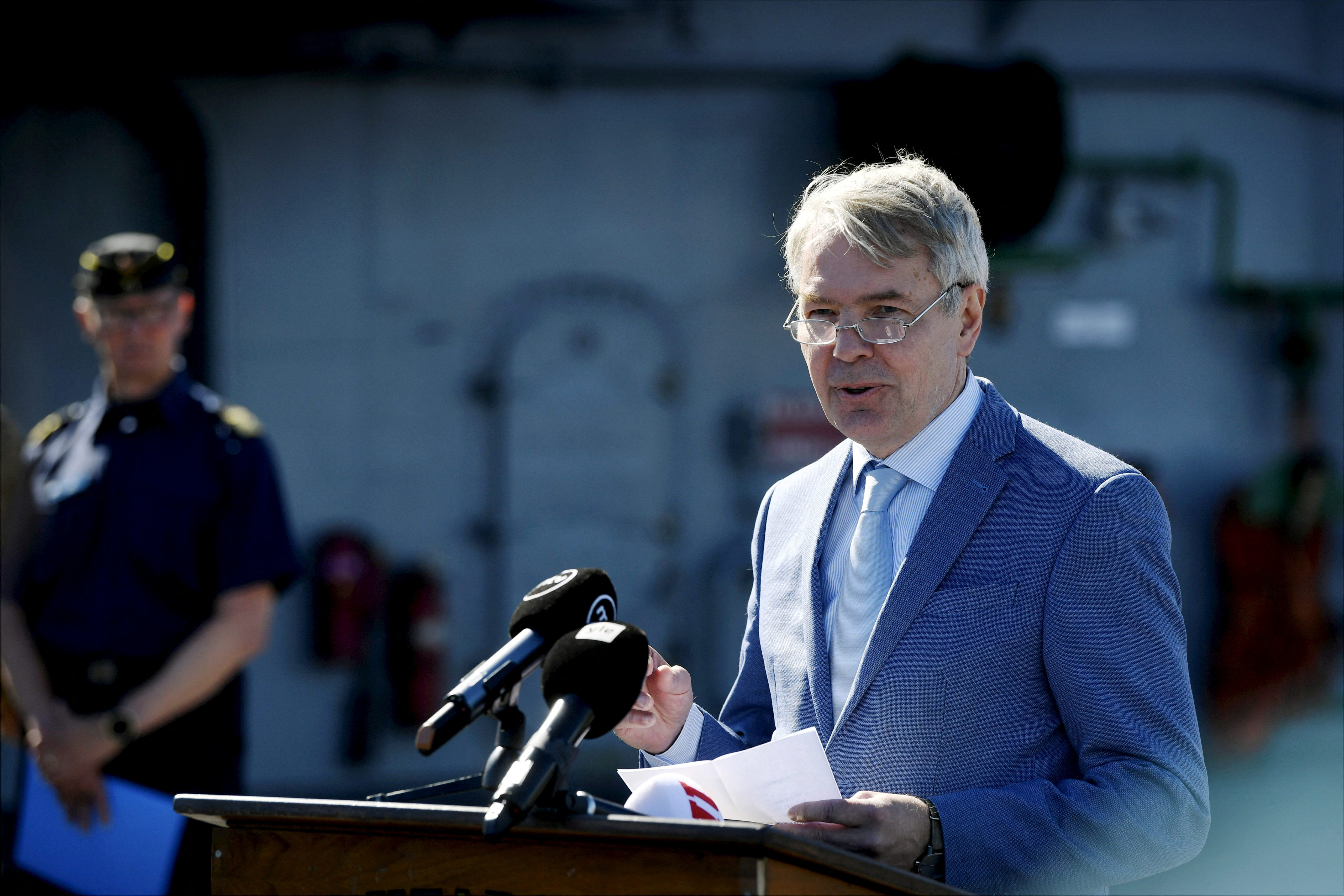
Sign up here.
Reporting by Essi Lehto, editing by Stine Jacobsen, Bernadette Baum and Alex Richardson
Our Standards: The Thomson Reuters Trust Principles. New Tab , opens new tab
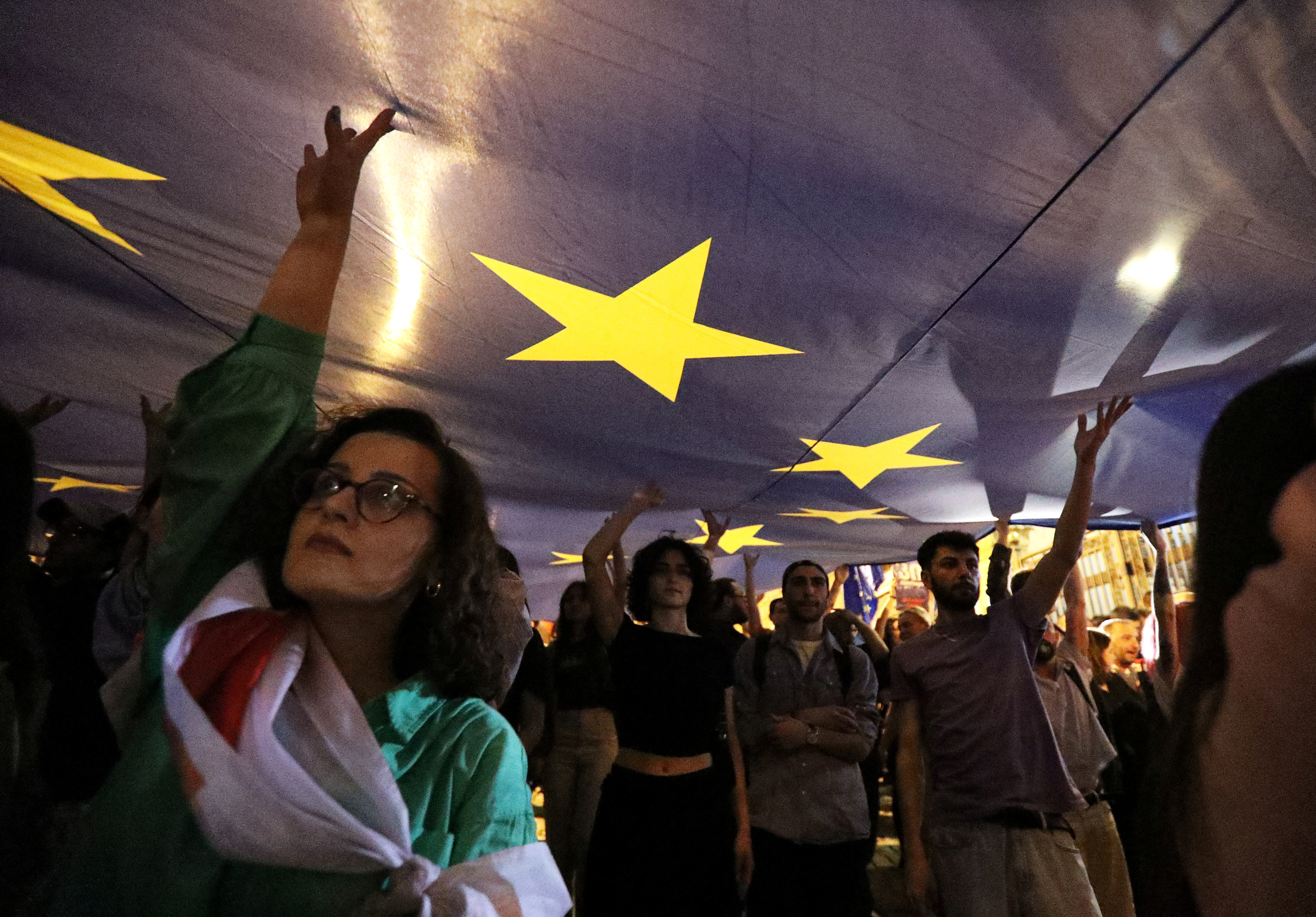
World Chevron

UCLA skirmish highlights weekend of protests on US campuses
Protests at U.S. universities showed no sign of slowing over the weekend, with more arrests on campuses and a brief skirmish between pro-Israeli and pro-Palestinian demonstrators at California's UCLA, where a tent encampment was set up last week.
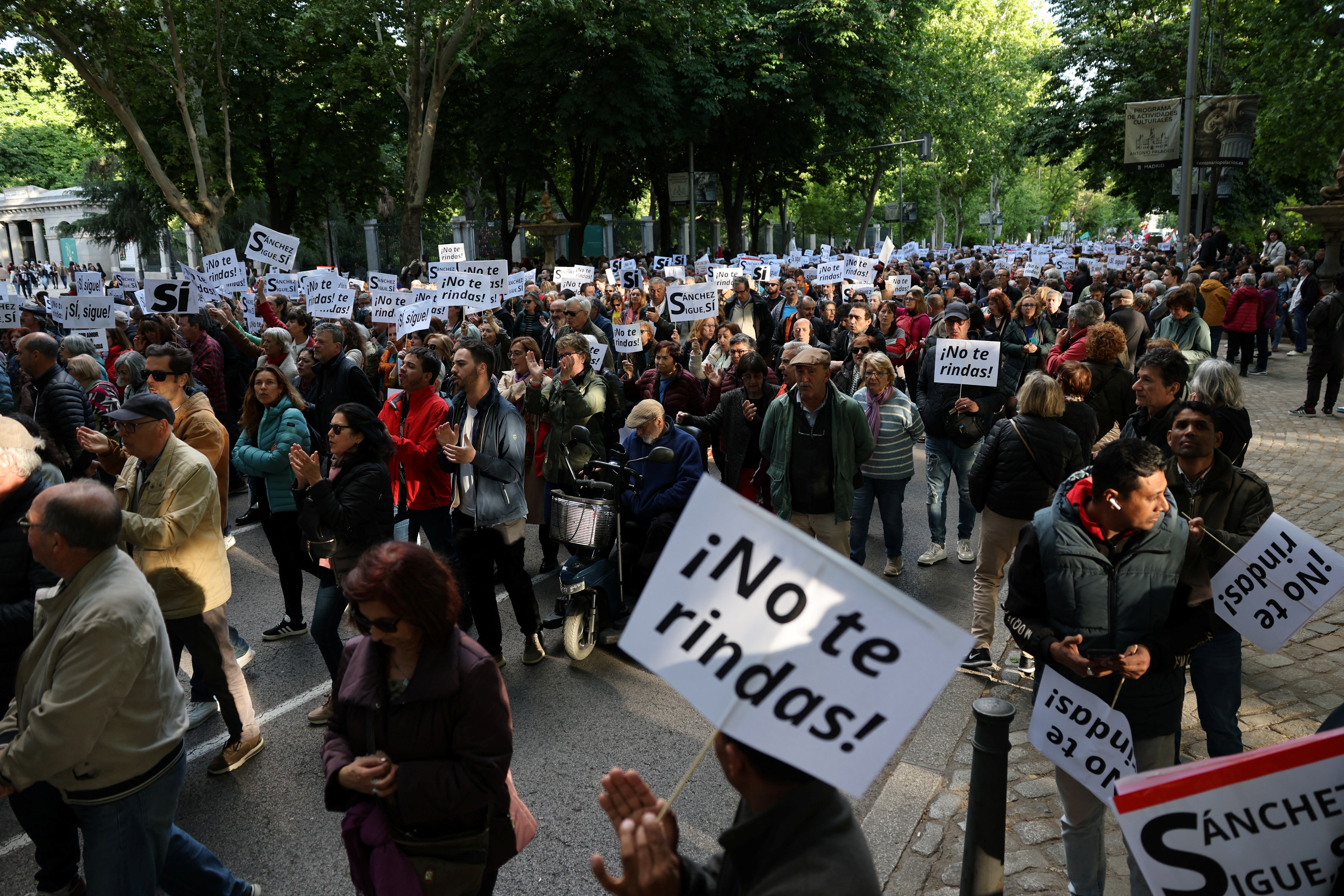
North Korea criticized the United States for supplying long-range missiles to Ukraine, state media KCNA reported on Monday, citing a statement from the defence ministry.
Finland limits tourist visas for Russians
Finnish foreign minister says decision comes amid influx of Russian tourists using Finland as a gateway to European holiday destinations.

Finland will limit the number of visas issued to Russians to 10 percent of the current volume from September 1 due to rising discontent over Russian tourism amid the war in Ukraine , the government has said.
“Tourist visas will not stop completely, but their number will be significantly reduced, ” Foreign Minister Pekka Haavisto said on Tuesday in Helsinki, amid a rush of Russian visitors bound for Europe.
Keep reading
With nato move, is normally neutral finland boosting security, putin condemns nato’s ‘imperial ambitions’, warns finland, sweden, nato allies sign accession protocols for sweden and finland.
Haavisto said the decision had come as an influx of Russian tourists began using Finland and its Helsinki-Vantaa airport as a gateway to European holiday destinations, after Russia lifted pandemic-related border restrictions a month ago.
Tourist visas from neighbouring Russia will be limited by restricting the allotted opening hours for tourism visa applications, as an outright ban based on nationality is not possible, Haavisto said.
“This means that other types of visas – visits to relatives, family contacts, work, study – will be given preference and more time,” the minister explained.
Currently, Finland processes approximately 1,000 Russian visa applications a day, Haavisto told public broadcaster Yle separately.
Finland will also look into establishing a specific humanitarian visa category, which the country lacks.
“This could make the situation in certain circumstances much easier for journalists or NGO workers”, Haavisto said.
Just days after Russia invaded Ukraine in February, Finland joined a string of Western countries in closing their airspace to Russian planes in response, making it difficult for Russians to travel to Europe .
The foreign minister also announced that Finland and the Baltics would together propose that the European Union discontinue a visa facilitation agreement with Russia. This would increase the price of tourist visas from 35 euros to 80 (from $35 to $81).
Finland intends to raise the issue at the next meeting of European Union (EU) foreign affairs ministers in the Czech Republic on August 30.
The Nordic country has applied for NATO membership after political and popular support for the alliance soared following Moscow’s invasion of Ukraine, but it remains Russia’s only EU neighbour without restrictions on tourist visas for Russian citizens.
“It’s not right that Russian citizens can enter Europe, the Schengen area, be tourists … while Russia is killing people in Ukraine. It’s wrong”, Prime Minister Sanna Marin said Monday.
While the numbers are still well below pre-COVID-19 levels, there were more than 230,000 border crossings in July – up from the 125,000 seen in June.
- International
September 30, 2022 Russia-Ukraine news
By Tara Subramaniam , Andrew Raine , Sana Noor Haq and Adrienne Vogt , CNN
Entry of Russian citizens to Finland closed only for tourist visa holders, ambassador says
From CNN's Tim Lister and Radina Gigova
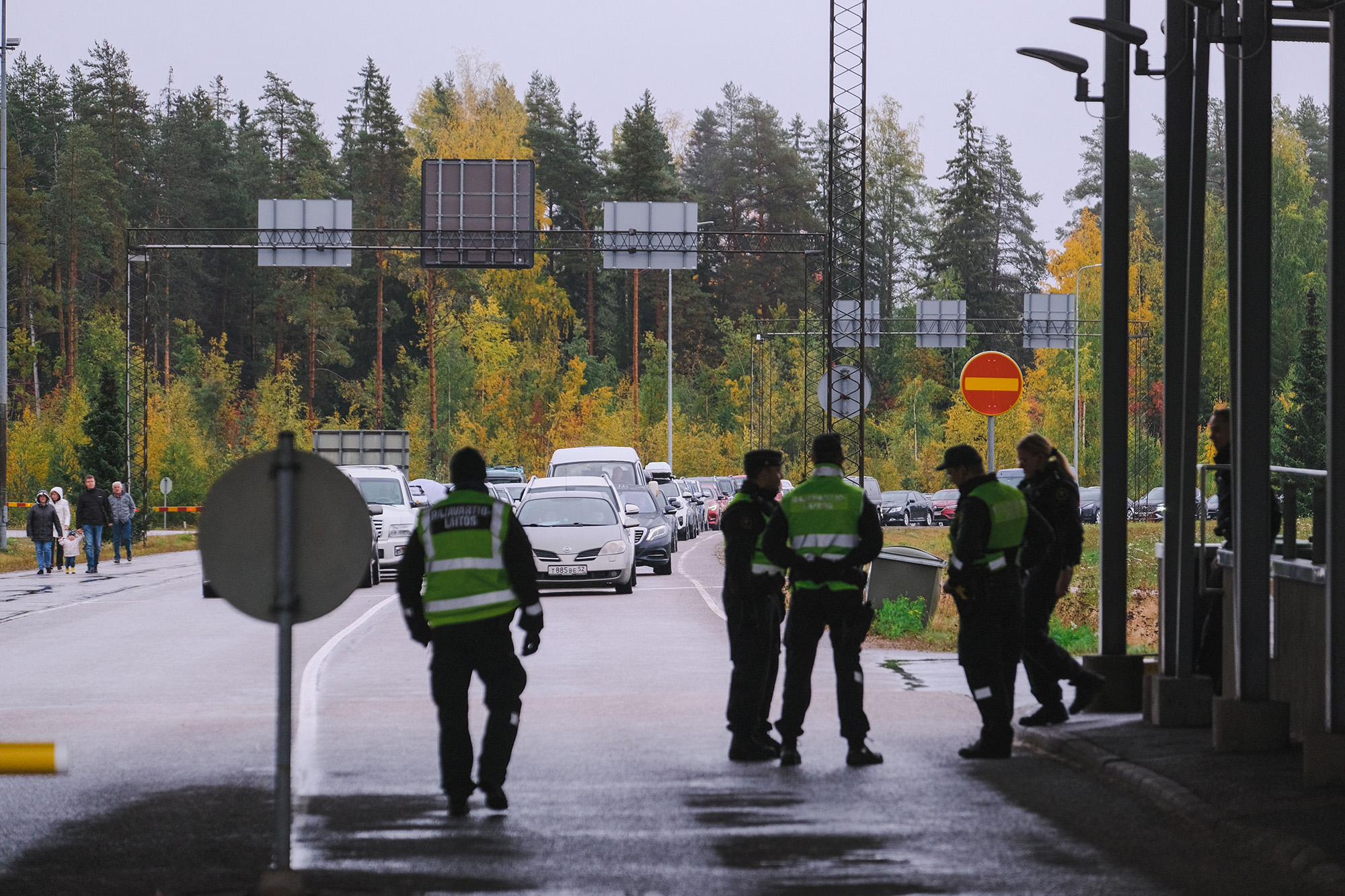
The entry of Russian citizens to Finland is closed only for tourist visa holders, but other types of trips are still possible, according to the Russian ambassador to Helsinki.
"From today, the Finns prohibit the entry of Russians for tourist purposes. Other trips are still allowed — these are visits to relatives, work, study, treatment, business trips and so on," Pavel Kuznetsov said on Russian state TV channel Russia 24 on Friday.
Finland's government said on Thursday that the country will close its borders to Russian tourists starting Friday at midnight (local time) until further notice.
Following Russian President Vladimir Putin's announcement earlier this month of "partial mobilization," the country saw nationwide protests and an exodus of citizens fleeing the country.
Some context: On Sunday, 8,314 Russians entered Finland via the Finnish-Russian land border — double that of the previous Sunday, the border guard’s head of international affairs tweeted at the time.
Including Saturday's numbers, 16,886 Russians arrived in total, with "many in transit to other countries," Matti Pitkäniitty added.
Ukrainian forces take key village in Donetsk region as they encircle Russian units
From CNN's Tim Lister, Victoria Butenko, Olga Voitovych and Sarah Dean
Ukrainian troops said they have taken the village of Yampil in the eastern Donetsk region, a significant objective in their efforts to encircle Russian and pro-Russian forces in the town of Lyman.
"Yampil is ours," a soldier said in a brief video posted by Ukrainian troops. He is standing in front of a building with a sign that says: "Yampil school complex."
Pro-Russian Telegram channels have described a bleak situation for the approximately 2,000 remaining troops in the area.
One prominent channel with more than 800,000 subscribers commented on Friday that Russian Armed Forces "withdrew from Yampil to Lyman."
"The Armed Forces of Ukraine managed to break through the defensive orders of the RF (Russian Federation) Armed Forces and force the Russian troops to retreat to the city (Lyman)," the channel, which goes by the name of Rybar, wrote.
"The Lyman defensive line has narrowed to the administrative boundaries of the city itself. If emergency measures are not taken in the near future to release the Lyman and transfer a significant part of the reserves, then the city, together with its defenders, will fall, and nothing will stop Ukrainian formations from developing an offensive deep into Russian territories," Rybar added.
The head of the self-proclaimed Donetsk People’s Republic later conceded that Yampil and the nearby village of Drobysheve "are not fully under our control."
Denis Pushilin called the news from Lyman "disturbing" in a Telegram post.
"Our guys are fighting, we are pulling up reserves, we must hold out, but the enemy has also deployed serious forces," Pushilin added.
Moscow will recognize all of Donetsk and Luhansk regions as Russian territory, including areas controlled by Ukraine
From CNN's Tim Lister and Anna Chernova
Russia will recognize the entirety of the self-proclaimed Donetsk and Luhansk People’s Republics within their declared borders of 2014 as part of its territory, the Kremlin told CNN on Friday.
The laws of the self-declared republics state that their borders are those of the whole Donetsk and Luhansk regions of Ukraine. Ukrainian forces currently control about 40% of the eastern Donetsk region.
When asked if the territories of the Donetsk People’s Republic (DPR) that are currently under Ukraine’s control will be considered as part of Russia as well, Kremlin spokesman Dmitry Peskov said: "De jure yes. By joining the Russian Federation, a state that has been recognized by us within the boundaries of 2014 is joining."
The territory of the DPR that is not currently controlled by the Russian army "will have to be liberated," Peskov added.
Peskov could not immediately provide an answer about Kherson and Zaporizhzhia, the two other areas where so-called referendums were held, adding: "I need to confirm this."
The announcements come after people in four occupied areas of Ukraine supposedly voted in huge numbers in favor of joining Russia, in five-day polls that were illegal under international law and dismissed by Kyiv and the West as a sham.
Some context: Russian President Vladimir Putin will preside over the start of the process to formally annex more Russian-occupied areas of Ukraine at the Kremlin on Friday. Agreements will be signed on absorbing the four occupied territories to the Russian Federation.
On Thursday, Putin signed decrees recognizing the independence of the occupied regions of Kherson and Zaporizhzhia — a necessary formality before they are annexed.
Western leaders saw Putin's decision to identify Donetsk and Luhansk in early February as an attack on Ukrainian sovereignty that served as a pretext for war. Days later, Moscow launched its military assault on Kyiv.
Kremlin will consider attacks on newly annexed territories as aggression against Russia
From CNN's Anna Chernova
The Kremlin has reiterated that any attacks on Ukrainian territory annexed by Russia will be considered as acts of aggression against the country itself.
When asked whether, after annexation documents are signed, Russia would perceive attacks by Ukrainian forces on annexed territories as an act of aggression against Moscow, Kremlin spokesman Dmitry Peskov said: "It won't be anything else."
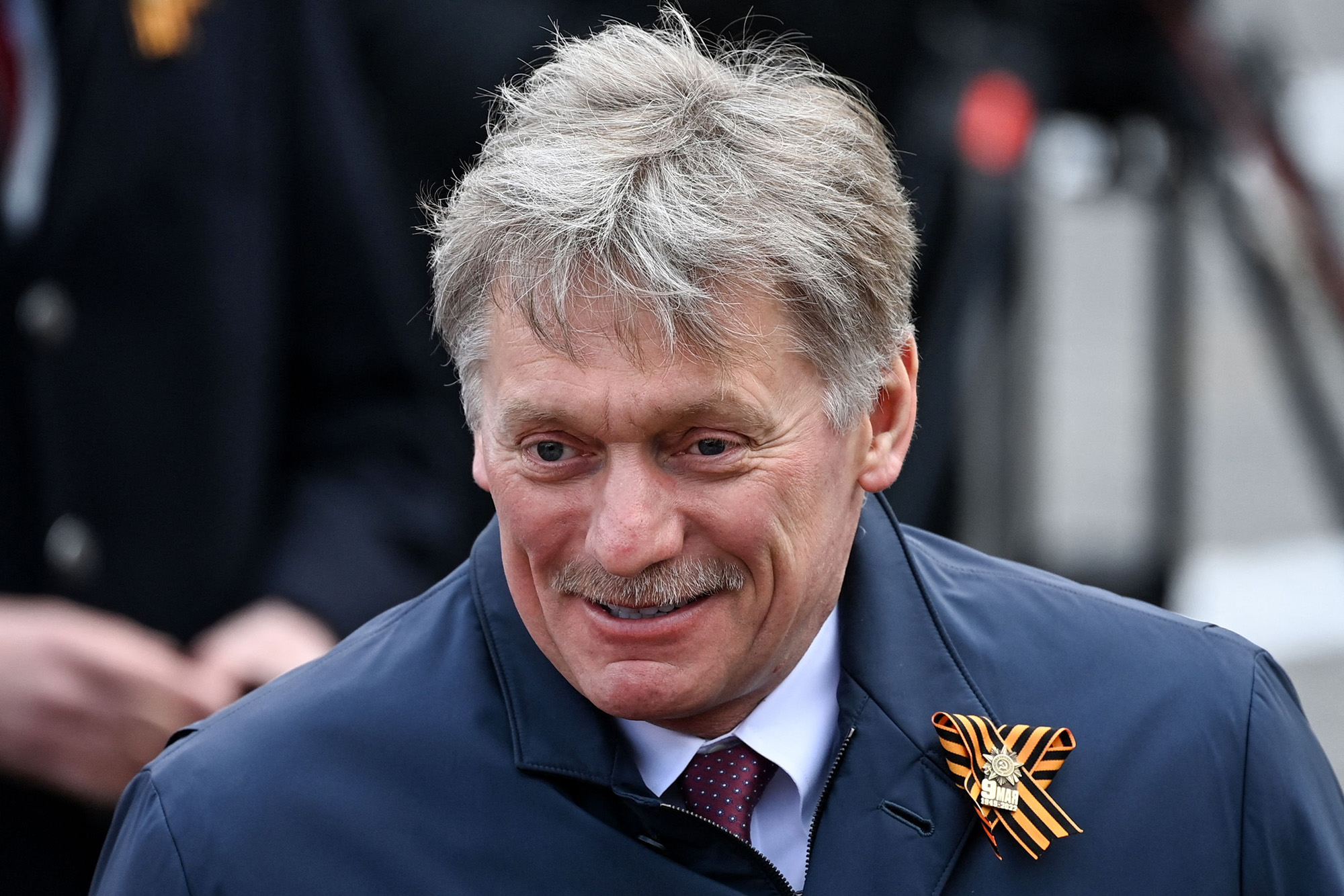
Russian President Vladimir Putin is expected to sign documents formally annexing four areas of Ukraine — up to 18% of Ukrainian territory — at a ceremony in the Kremlin on Friday.
The ceremony follows so-called referendums held by Russian-backed authorities in Donetsk, Luhansk, Kherson and Zaporizhzhia on joining Russia. The votes are illegal under international law and have been dismissed by Kyiv and Western leaders as "a sham."
The four separate agreements on the admission of new territories to the Russian Federation will be signed in the Kremlin at a ceremony attended by Russian-installed heads of the self-proclaimed Donetsk and Luhansk People’s Republics and of occupied parts of Zaporizhzhia and Kherson regions.
Zelensky condemns Russian attack on civilian convoy in Zaporizhzhia, as death toll rises to 25
From Olga Voitovych and Victoria Butenko
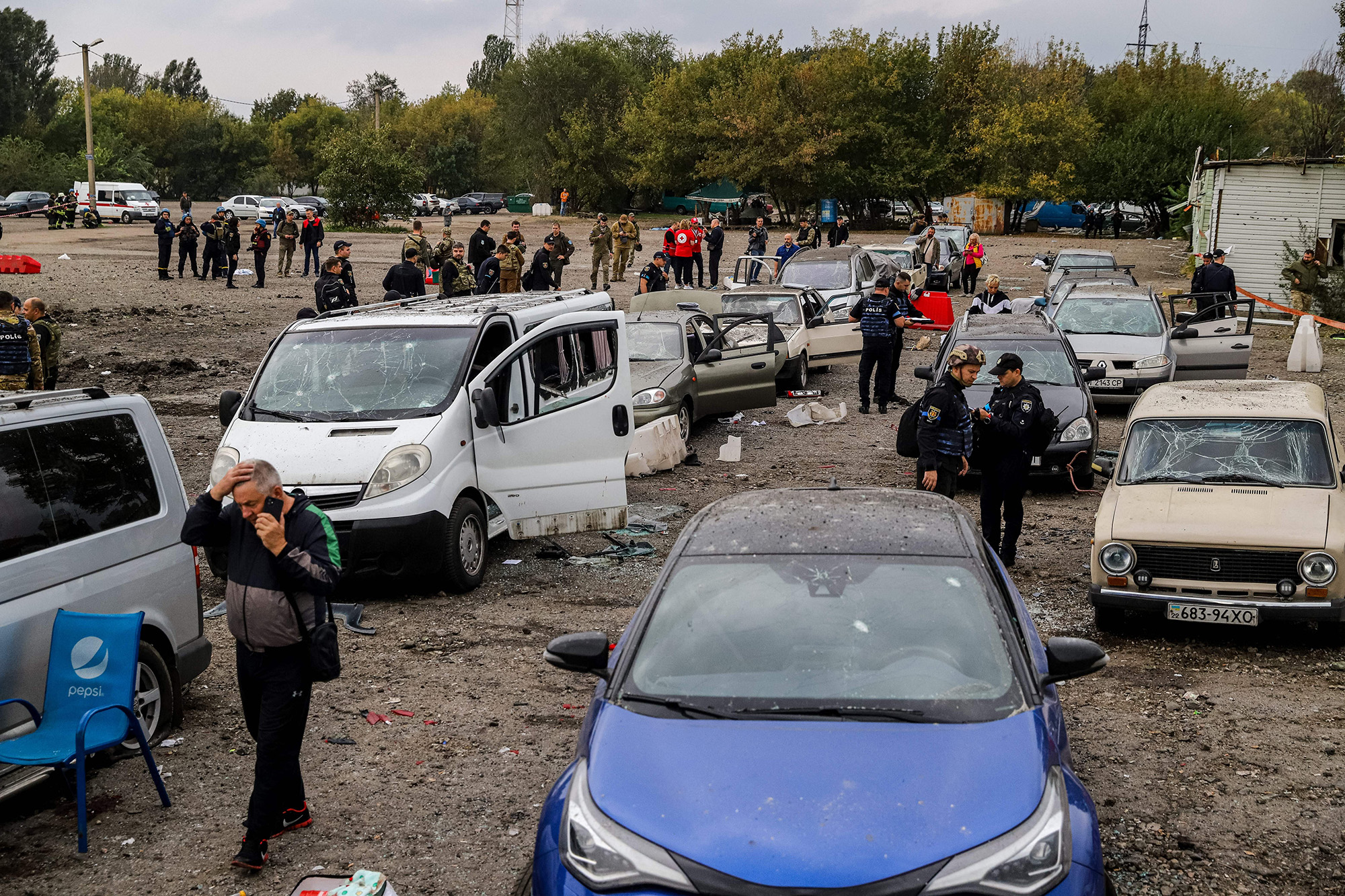
Ukrainian President Volodymyr Zelensky has said the Russian forces who carried out a missile attack on an evacuation convoy in Zaporizhzhia are "downright terrorists."
Russian shelling bombarded a civilian convoy leaving the city in southeastern Ukraine on Friday morning, with images from the scene showed battered vehicles strewn on the ground.
The number of people killed in the shelling has risen to 25 and about 50 people are injured, including children, according to the Prosecutor General's office.
"The terrorist state fires missiles at the civilian population in Zaporizhzhia, the Mykolaiv region, the Dnipropetrovsk region. Hits Ukrainian regions with MLRS (Multiple Launch Rocket Systems) and drones," Zelensky said on Telegram.
"The occupiers fired 16 missiles at Zaporizhzhia and surroundings this morning alone. This can only be done by downright terrorists, who should have no place in the civilized world."
"People were in line to leave for the temporarily occupied territory, to pick up their relatives, to deliver aid," Oleksandr Starukh, head of the Zaporizhzhia regional military administration, said earlier on Telegram.
The attack took place at 7:30 a.m. local time (12:30 a.m.) at a used car market where vehicles had gathered before proceeding to a crossing point into Russian-held territory further south.
Moscow-installed official in Kherson region killed in strike, says Russian state media
From CNN's Anna Chernova and Sarah Dean
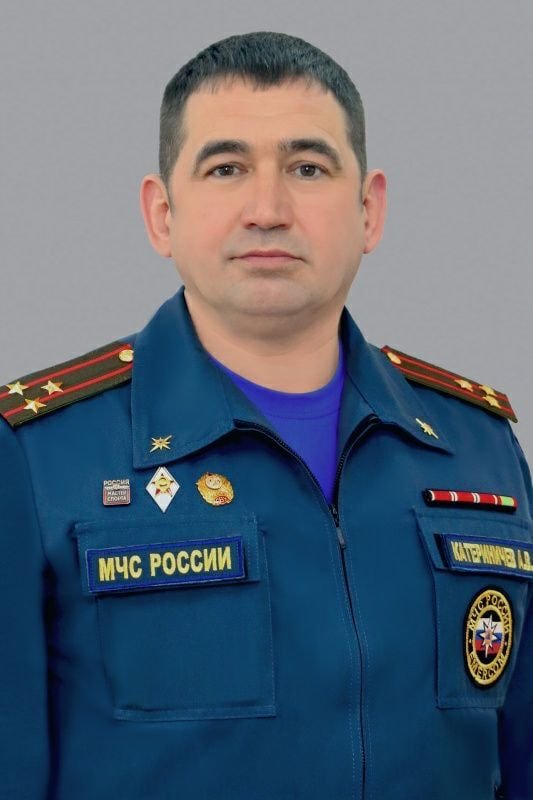
A Moscow-installed official in the southern Kherson region of Ukraine has been killed in a Ukrainian missile strike, according to Russian state media.
"On September 30, Alexey Katerinichev, First Deputy Head of the Military-Civilian Administration of the Kherson Region, tragically died while doing his duty," a statement from Russia's Ministry of Emergencies added.
Katerinichev was born in the Russian city of Rybinsk, in the Yaroslavl region, and took up the post in the Kherson region in August, Russian state news agency RIA Novosti reported.
He was previously the first deputy head of the Leader Center for High Risk Rescue Operations and prior to that served in the Federal Border Service and the Federal Security Service, the Ministry of Emergencies statement said.
Katerinichev "organized the activities of the Operational Headquarters of the FSB of Russia in the Kaliningrad region. For his courage and heroism, he was repeatedly awarded military orders and medals," the statement added.
Ukrainian authorities have not commented on the attack.
UK "will never accept" Moscow's annexation of four occupied Ukrainian regions, prime minister says
From CNN's Luke McGee in London
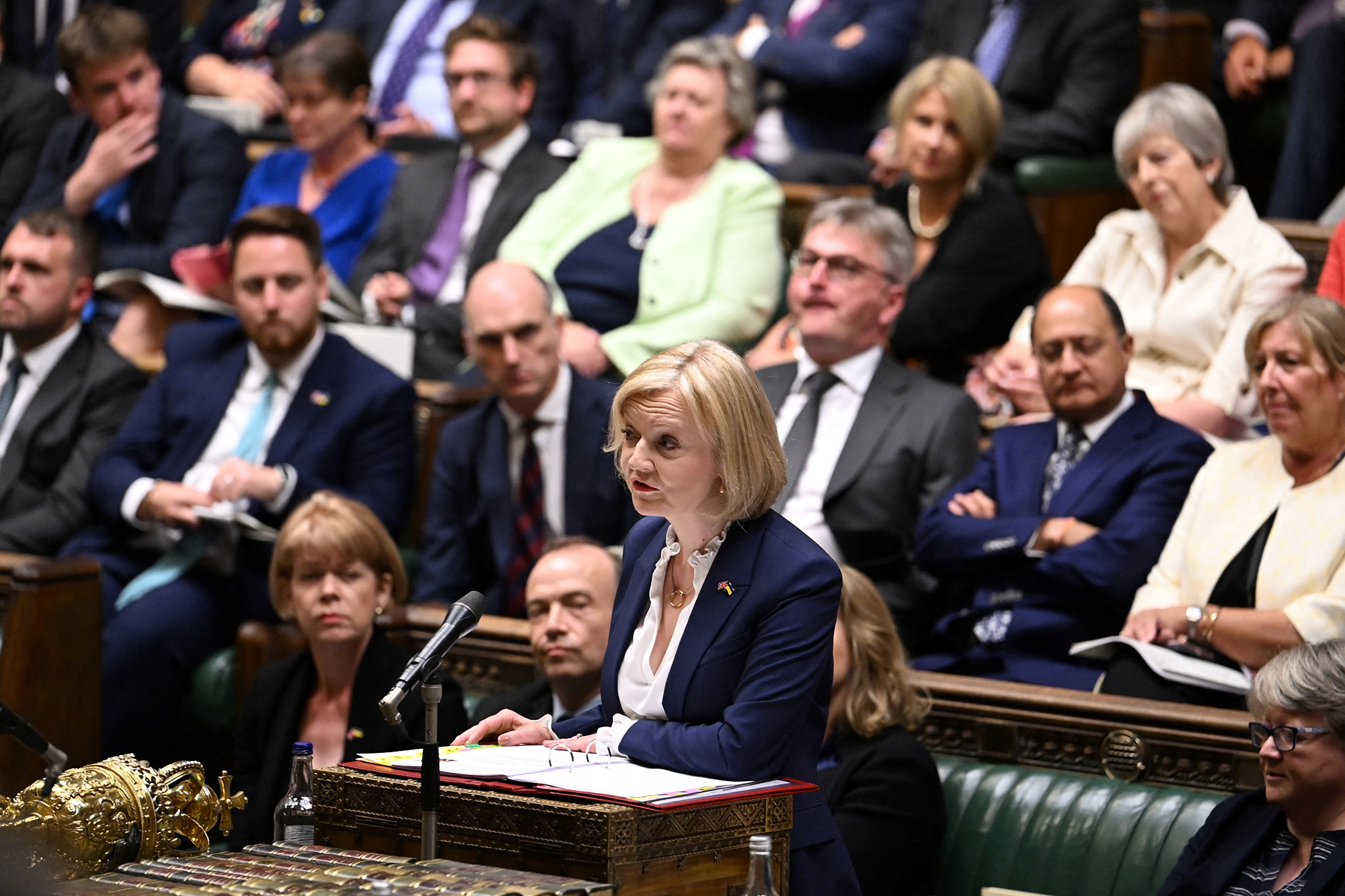
UK Prime Minister Liz Truss said the UK will "never accept" four occupied regions in Ukraine as anything other than Ukrainian territory, ahead of a Kremlin ceremony during which Russia is expected to formally annex the areas.
In recent days, Kremlin-backed authorities held referendums in Donetsk, Luhansk, Kherson and Zaporizhzhia on joining Russia. The votes are illegal under international law and have been dismissed by Kyiv and Western leaders as "a sham."
"We will never accept the regions of Donetsk, Luhansk, Kherson and Zaporizhzhia as anything other than Ukrainian territory," Truss in a statement on Friday.
"Vladimir Putin has, once again, acted in violation of international law with clear disregard for the lives of the Ukrainian people he claims to represent.
"The UK will never ignore the sovereign will of those people and we will never accept the regions of Donetsk, Luhansk, Kherson and Zaporizhzhia as anything other than Ukrainian territory.
"Putin cannot be allowed to alter international borders using brute force. We will ensure he loses this illegal war."
One killed, dozens of buses destroyed in missile attack on Dnipro, Ukrainian officials say
From Olga Voitovych
Russian cruise missiles have hit the depot of a transport company in the Ukrainian city of Dnipro, killing one person and setting fire to dozens of buses.
Valentyn Reznichenko, head of the Dnipropetrovsk regional military administration, said one person was killed and five were injured after Russian “Iskander” cruise missiles hit the city.
"Fifty-two buses were burnt, another 98 were damaged. Several high-rise buildings, a gymnasium, a store and administrative buildings were damaged," Reznichenko said.
Kyrylo Tymoshenko, deputy head of the President's Office in Kyiv, said two missiles had hit the area.
Head of Russian region of Dagestan lashes out at local draft officers
From CNN's Josh Pennington and Mohammed Tawfeeq
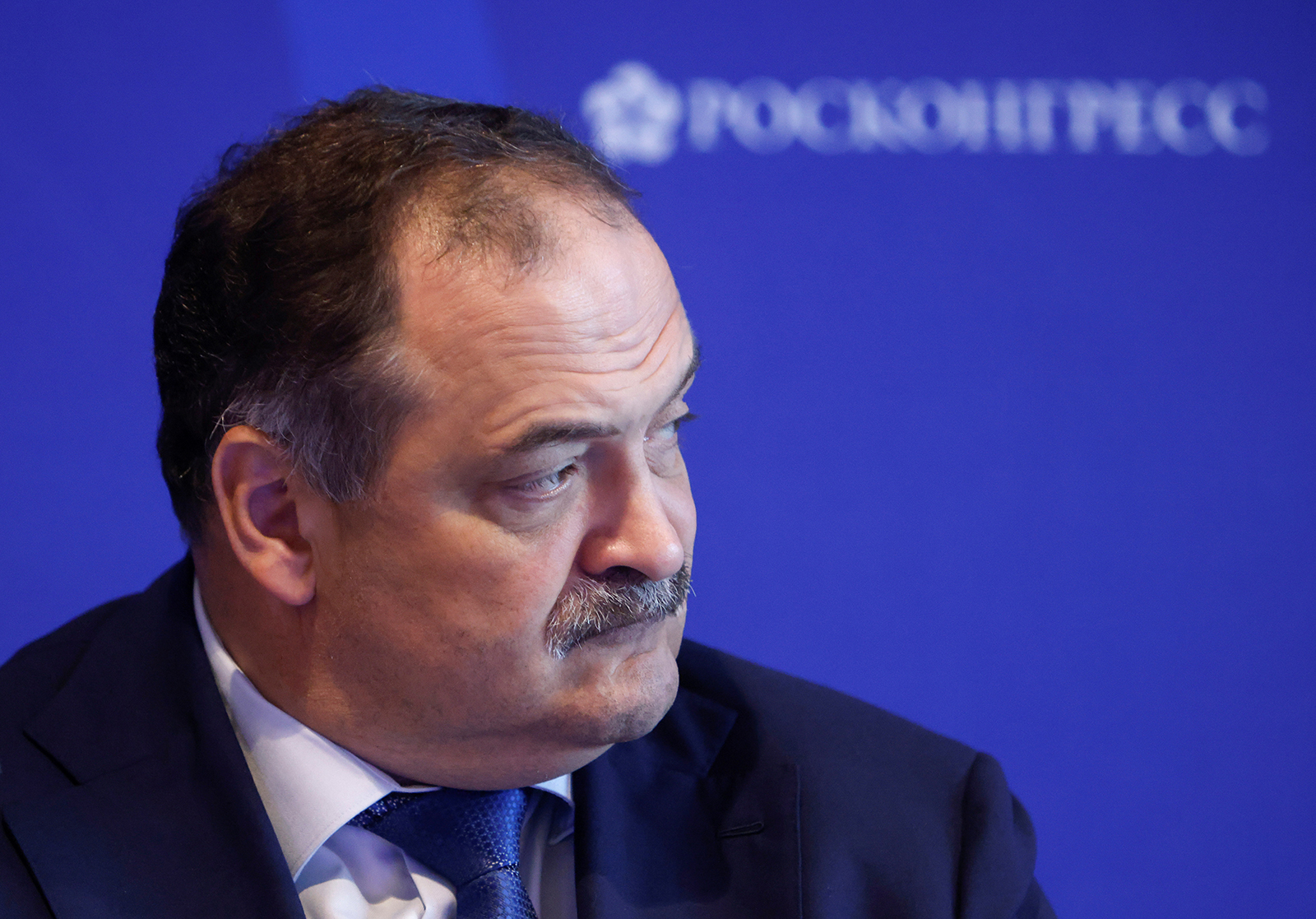
The head of the Russian Republic of Dagestan expressed his anger in a video on Thursday toward draft officers who had been driving around the city of Derbent, calling on loudspeakers for "all male citizens to report to military enlistment offices.
"How could the Derbent draft officers ask people to report to the enlistment and registration office in such a manner?!" Dagestan's President Sergey Melikov said in a video during a meeting of the Security Council of Dagestan.
"Who authorized them to drive around the city?!" he added.
During his tirade, he played a short video clip on his phone. The audio plays the following message: "Dear citizens of Derbent, all male citizens must immediately report to the Derbent enlistment office. You must have your passport and military identity card with you."
Russian President Vladimir Putin's "partial mobilization" decree stipulated that reserve servicemen with previous military experience and men with professional experience required by the military would be called up. A total of 300,000 reservists are eligible to be drafted, according to the decree.
Some context: Since Putin's declaration of a "partial mobilization" last week, hundreds of civilians have taken part in a wave of protests against the military mobilization in Dagestan, according to social media videos circulated online.
Protesters nationwide have accused the Russian military of drafting students, fathers and men whose age should exempt them from service.
On Thursday, Putin demanded that "mistakes" made during the partial mobilization be rectified.
"For example, fathers of multiple children or people suffering from chronic diseases or those who are already beyond the age of military service. It is necessary to consider each such case separately."
"And if a mistake is made, then I repeat, it needs to be corrected. Return home those who were called up without a proper reason," he continued.
Please enable JavaScript for a better experience.

A Growing Backlash Against Russian Tourists Is Dividing Europe
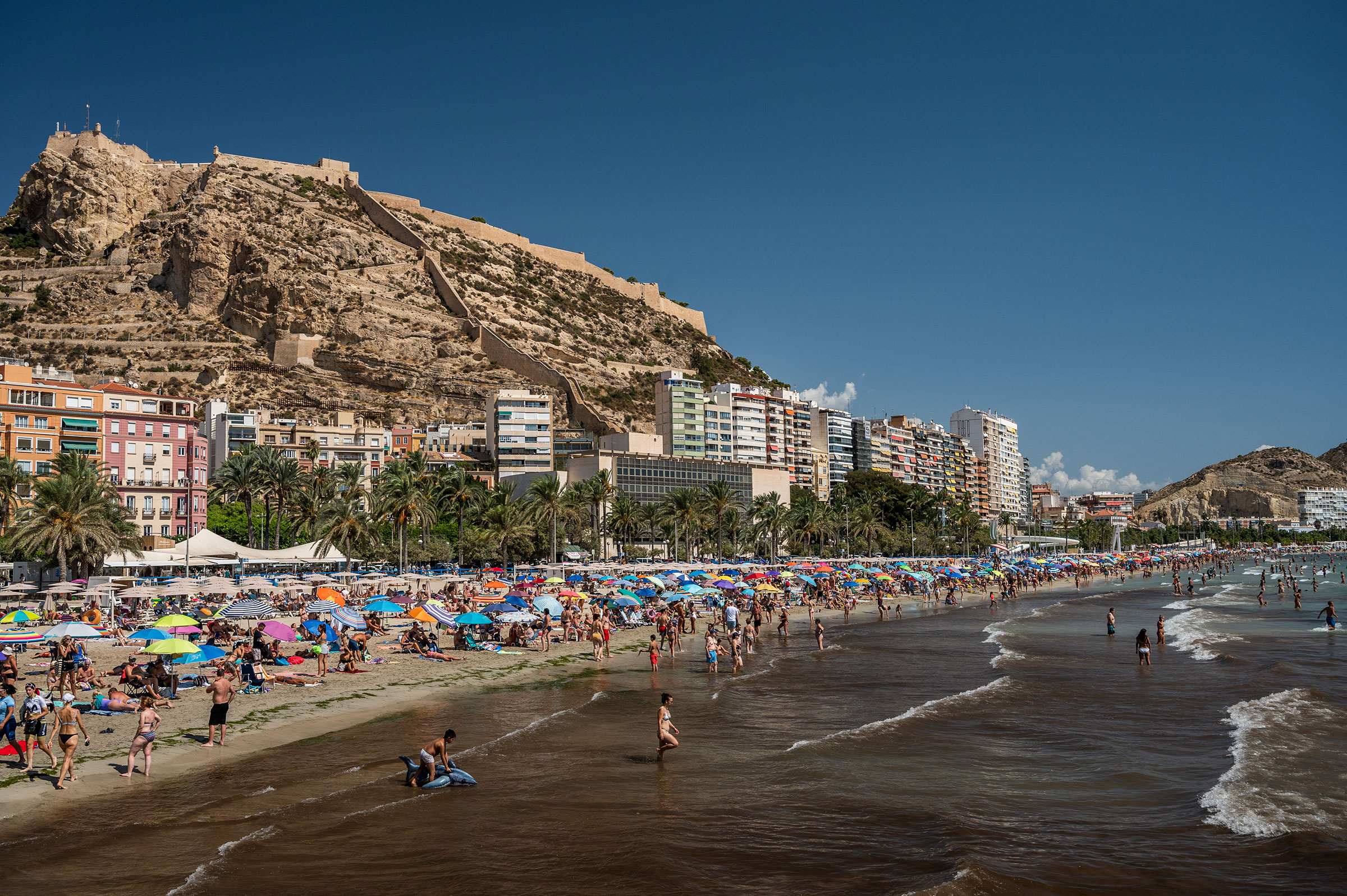
L aplandia greets the shopper with the powerful aroma of smoked salmon. The sprawling warehouse of a store—located on the outskirts of Lappeenranta, Finland—opens to a display counter stocked with great slabs of the fish on plastic trays, some of it cured with herbs, some of it sprinkled with local lingonberries. But Elena wasn’t there for fish. On the morning of Aug 31, the 30-year-old Russian (who declined to give her last name to avoid social media criticism) had driven about 125 miles from St. Petersburg, Russia to buy warm clothing and shoes for her young son, plus other household supplies that EU and American sanctions had made it difficult to find at home . There was an urgency to her shopping as she beelined past the candy-colored heaps of plastic sandals and gigantic bags of chips, to a row containing industrial-sized bottles of laundry detergent—aware of a looming decision by the Finnish government “I’m worried they’re going to close the border again,” she said. “So we’ve been stocking up. This is my third trip in a week.”
Elena had reason for concern. Ever since Aug. 8, when Ukrainian president Volodymyr Zelensky called for Western countries to ban visas for Russian tourists, some European countries have been taking the suggestion very seriously. On Sept. 1, Finland—which shares a 830-mile land border with Russia—began sharply restricting the number of tourist visas it issued, from 1,000 to 100 per day. And the day before, when Elena made her third trip to Laplandia, the E.U.’s foreign ministers agreed at a meeting in Prague to make it harder—but not impossible—for Russians to travel. If some of those ministers have their way, more restrictions could be coming.
“It’s not right that at the same time as Russia is waging an aggressive, brutal war of aggression in Europe, Russians can live a normal life, travel in Europe, be tourists,” Finland’s Prime Minister Sanna Marin told broadcaster Yle on Aug. 8.
Read More: ‘There’s an Atmosphere of Fear.’ With Flights Banned, Russians Are Fleeing By Train for Europe
Marin’s country is one of the few access points into Europe after the E.U. imposed a blanket flight ban to and from Russia three days after Russia launched a full-scale invasion of Ukraine on Feb. 24. Since Russia lifted its remaining COVID-19 restrictions on July 15, the number of people driving across at border station Nuijamaa near Lappeenranta—as well as others—has surged. “I would say it has grown about 5% per week,” says Petri Kurkinen, deputy chief of the local Finnish border police. “Right now, we’re at about 3,000 people per day.”
Many of those people, like Elena, had just come for a day’s shopping and would return to Russia that same evening. But others would travel to coastal cottages in Finland for summer vacations or drive straight to the airport in Helsinki, the country’s capital, and then board flights for Spain, France, and Greece. According to Frontex, the E.U.’s border agency, more than 1 million Russians have done just that since the invasion, most of them via Finland and Estonia, which also shares a land border with Russia.
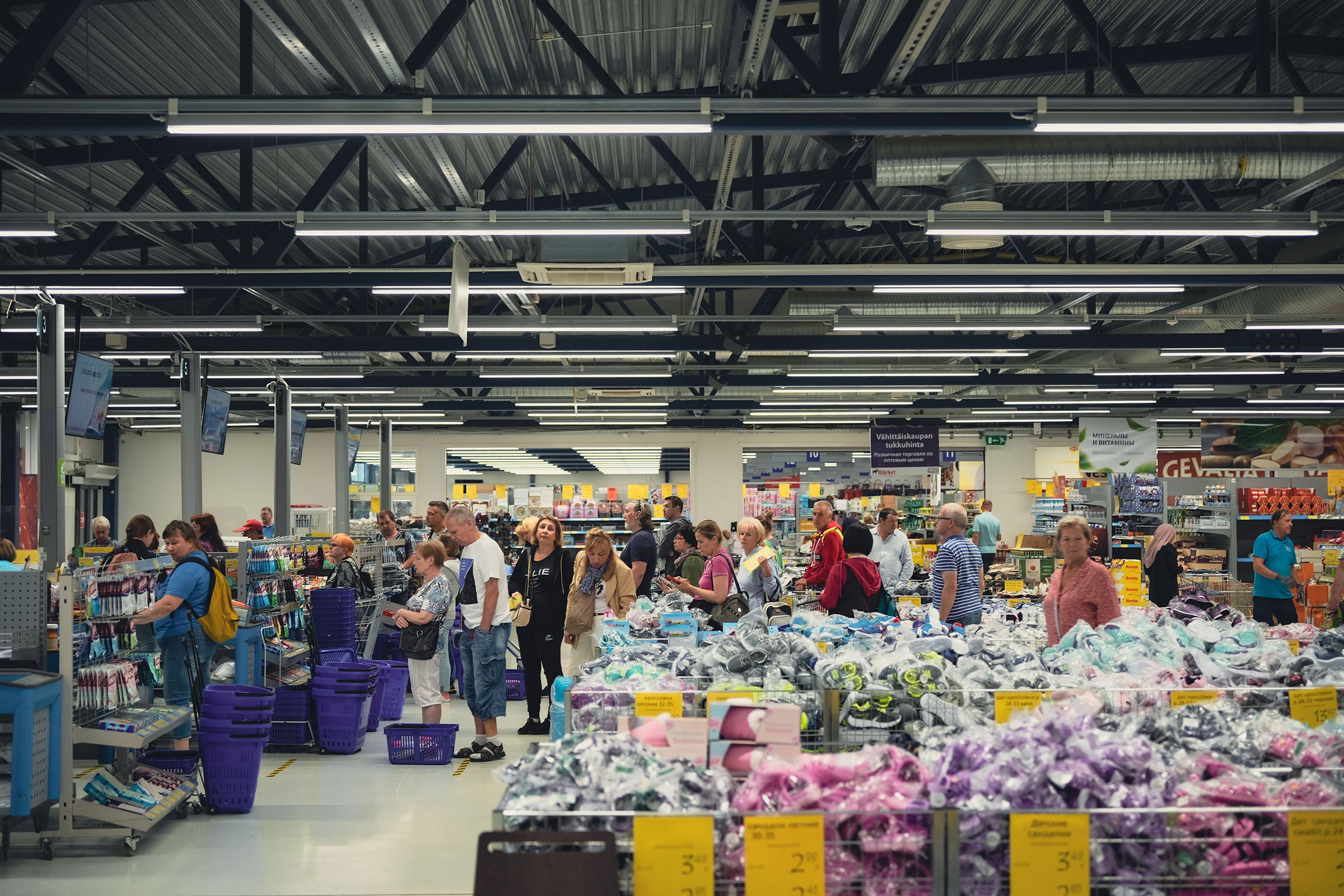
For some of Europe’s leaders, the sight of Russian tourists sunning themselves on their beach or sitting in outdoor cafés while some of their fellow citizens participate in the devastation of Ukraine, was morally untenable. They also worried about the security threat. “What do the chemical attack in Salisbury in 2018, the Czech arms depot explosion in 2014 and the killing of a Chechen dissident in Germany in 2019 have in common?” wrote Estonian Prime Minister Kaja Kallas in a statement to TIME. “The answer: Russian agents using European tourist visas. We can see a clear pattern. Amidst aggressive Russia next door, the risk of Russian agents posing as tourists in [the] E.U. is logically higher than ever. And they do not just spy, they are often an active part of Russia’s hybrid and information warfare that’s happening alongside conventional war.”
On Aug. 18, Estonia stopped issuing tourist visas to Russians and stopped permitting entry under ones previously issued. Since then, it and other countries like Lithuania, Denmark, and the Czech Republic, have advocated for an outright ban on all Russian tourists throughout the Schengen Area—which covers 26 European countries and stretches across most of the continent. (European travel for other purposes, such as humanitarian reasons, visiting family, or to seek asylum, would remain protected.) “I simply don’t think that it is appropriate that at the same time when Ukrainian men and families have to defend their country, Russian men and Russian families can enjoy beaches in southern Europe,” says Estonian Member of the European Parliament (MEP) Urmas Paet, who serves as vice-chair of the E.U.’s Committee on Foreign Affairs.
Beyond that moral reasoning lies a political calculation: that increasing the pain for those Russians with enough disposable income to travel in Europe will encourage opposition to the Putin regime. “So far, people from Russian cities don’t actually feel the impact of Russia’s war in Ukraine,” says Paet. “The majority of soldiers come from poor provinces, not from Moscow and St. Petersburg. But if Europe bans tourists from coming, it will also increase the understanding in Moscow and St. Petersburg. And that may influence policy making.”
Yet other countries, including Germany, France, Spain, and Greece, have pushed back against that argument. Some leaders say that it is unfair to punish ordinary Russians for the policies of their government, particularly in an authoritarian country where the costs of dissent are high. Others contended that a visa ban would impede the work of dissidents attempting to collaborate with their counterparts outside Russia. “While limiting contacts with regime representatives and authorities to areas of vital EU interest, we need to strategically fight for the ‘hearts and minds’ of the Russian population—at least the segments not yet completely estranged from ‘the West,'” read a joint memo from France and Germany, according to a Reuters report on Aug. 30.
Opponents to the ban also expressed doubt that, in a country where it remains illegal to refer to the war as, in fact, a war, it would generate enough dissatisfaction inside Russia to have any kind of meaningful impact on the regime. “The political argument is completely misleading because less than a third of the Russian population has a passport to travel abroad,” says Marie Dumoulin, director of the Wider Europe program at the European Council on Foreign Relations (ECFR) Instead of leading to policy change, it would instead be “a wonderful argument for Kremlin propaganda. It will be presented as proof that it’s not about Russia waging a war against Ukraine, it’s the West waging a war against Russia, because the West is Russophobic. The Kremlin will say, ‘see, they don’t like Russians, they don’t want to see Russians in Europe.’”
Read More: In a War of Ideas, Banning Russian Propaganda Does More Harm Than Good
Ahead of the Prague meeting, tension between E.U. states over the proposed ban had grown quite sharp. But with European unity at stake, the bloc’s foreign ministers managed to reach a compromise, and decided to suspend a 2007 agreement that facilitated visas for Russians. (It’s unclear when this will take effect.) As a result, the cost of a tourist visa will rise from 35 euros to 80, the amount of documentation required from applicants will increase, and the length of time for obtaining a visa will stretch from a maximum of 10 days to 15.
The ECFR’s Dumoulin sees the decision as a success simply because it represents a compromise. “At some point, European unity is itself a policy goal. And it’s a much more important goal than setting symbols.”
Yet others aren’t so sure. The decision represents “a step in the right direction,” according to MEP Paet, but it “doesn’t go far enough.” And because it doesn’t prevent some countries from taking further action, as Finland and Estonia have done, the debate may not be over yet. As the border closures of the pandemic have shown, the Schengen agreement requiring visa-free travel among member states can be more flexible than expected in certain cases.
Those cases include security risks. “By the end of the meeting in Prague, a big number of E.U. countries were convinced that 12 million Russian citizens with valid, long term Schengen visas is a problem to E.U. security,” Lithuanian minister of foreign affairs, Gabrielius Landsbergis, wrote to TIME. “Thus, E.U. member states bordering Russia may apply national or regional security measures. Together with Estonia, Latvia, and Poland, in the coming weeks, we will seek to find solutions that will allow us to significantly limit the flow of Russian tourists.”
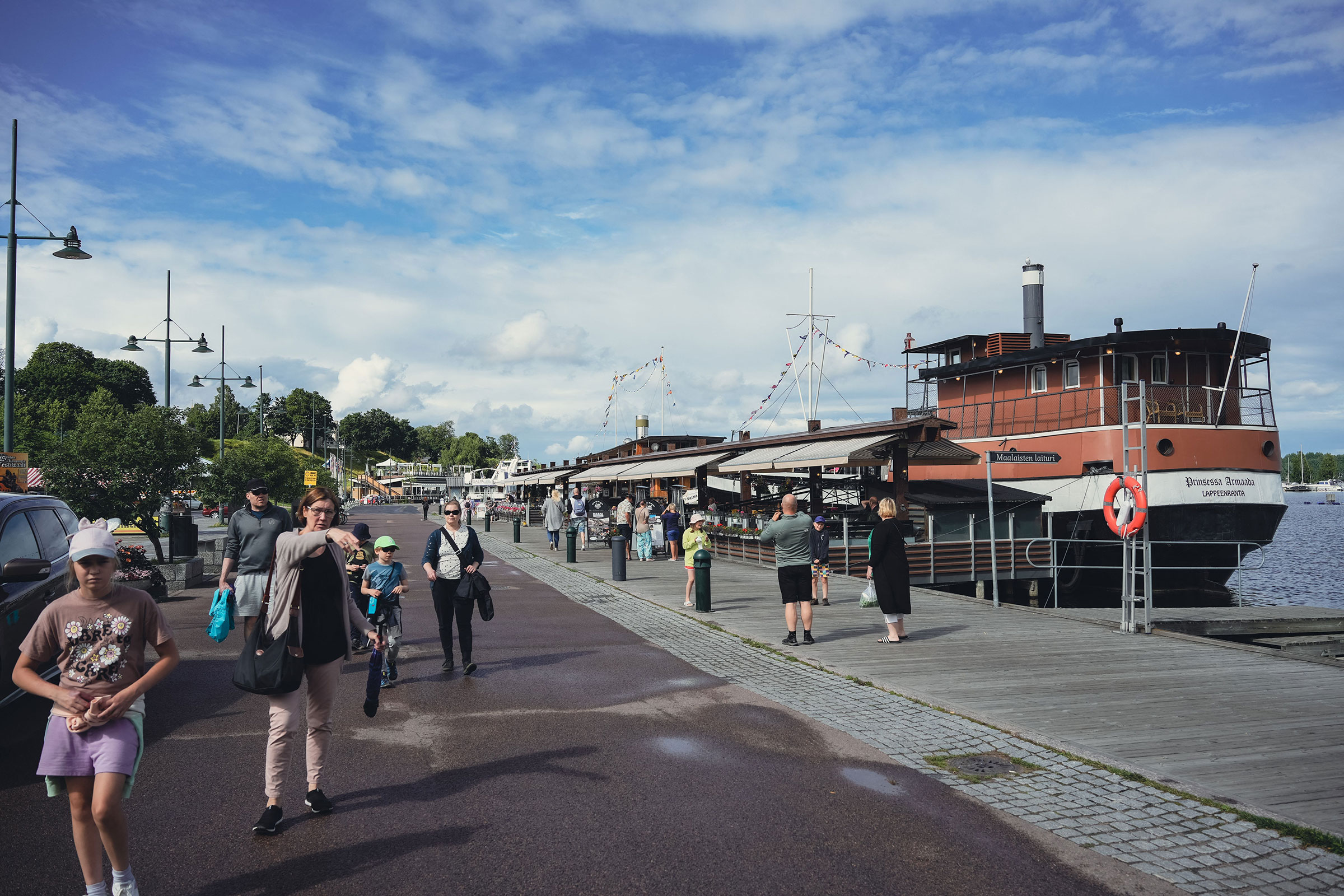
Back in Lappeenranta, which sits less than 40 miles from its sister city Vyborg in Russia, Finns are largely happy with the new restrictions, says Mayor Kimmo Jarva. The city has a long history of peaceful ties with its neighbor to the south, and in fact, counts some 3,000 Russian-speakers among its population of 72,000. Lappeenranta’s economy also relies—or has relied— heavily on Russian shoppers for years. “Before COVID, there were about 4,000 Russians coming every day,” Jarva says. “Now we are losing about 1 million euros every day. That started with COVID, but even now, many think we shouldn’t let them come. Although his city is “suffering economically,” Jarva says the sacrifice is worthwhile.
From his window in city hall, Jarva can gaze out at a cemetery where every headstone, he says, belongs to a soldier shot by Russians in the Second World War. That memory helps explain the local population’s desire to show its support to Ukraine—and just maybe irk Russian tourists.
So every evening at 7:30 p.m. for the past month, city hall speakers have boomed Ukraine’s national anthem. “We wanted to show our support, but also put a little bit of pressure on Russians, because we think it’s wrong that they can come and live a normal life,” Jarva says of the initiative. “Our citizens told us to do something. This is democracy.”
More Must-Reads From TIME
- The 100 Most Influential People of 2024
- Coco Gauff Is Playing for Herself Now
- Scenes From Pro-Palestinian Encampments Across U.S. Universities
- 6 Compliments That Land Every Time
- If You're Dating Right Now , You're Brave: Column
- The AI That Could Heal a Divided Internet
- Fallout Is a Brilliant Model for the Future of Video Game Adaptations
- Want Weekly Recs on What to Watch, Read, and More? Sign Up for Worth Your Time
Contact us at [email protected]
Visa Application Centre in Finland
Find out your visa type.
Before applying, please ensure you are very clear on your purpose of visit.
Apply for a visa
Check the quick instruction on how to apply for a visa
Get your passport back by post
After your application is processed get your passport delivered to your doorstep.
Tourist visa
Tourist Visa is required in case you enter Russian Federation for tourism purposes.
Business visa
Business visa is required in case you wish to enter Russia for business purposes.
Humanitarian visa
Humanitarian visa is required in case you wish to enter Russia for cultural purposes, science, sports, religion etc.
Private visa
Private visa is issued to foreign citizens entering Russian Federation to visit relatives or friends.
All visa types
Public holidays and closures 2023, additional services.
Check for the additional services available for your convenience at visa centres
Copying services
Photocopying and printing services are available for applicant’s use at the centre if required.
Express submission and delivery / Fast-track submission
Applications requiring express delivery to the consular representative office and passport submission back to the applicant.
1 application
Filling of the application form
You will be assisted with the filling or correction of your visa application form.
Passport application form
To the attention of the citizens of the Russian Federation applying for a passport
All services
Latest updates, visa centre is closed on a christmas day, visa centre in lappeenranta will not accept applications after 20.11.2023, privacy overview.
- Election 2024
- Entertainment
- Newsletters
- Photography
- Personal Finance
- AP Investigations
- AP Buyline Personal Finance
- AP Buyline Shopping
- Press Releases
- Israel-Hamas War
- Russia-Ukraine War
- Global elections
- Asia Pacific
- Latin America
- Middle East
- Election Results
- Delegate Tracker
- AP & Elections
- Auto Racing
- 2024 Paris Olympic Games
- Movie reviews
- Book reviews
- Personal finance
- Financial Markets
- Business Highlights
- Financial wellness
- Artificial Intelligence
- Social Media
European Union official von der Leyen visits the Finland-Russia border to assess security situation
European Commission President Ursula von der Leyen called for “all sides” to refrain “from further action” in the Middle East region.
President of the European Commission Ursula von der Leyen looks on during her joint press conference with Finnish Prime Minister Petter Orpo at the Lappeenranta airport, eastern Finland, Friday April 19, 2024. President von der Leyen and Prime Minister Orpo visited the eastern border region of Finland on Friday and discussed what Finland and the EU can do to prevent instrumentalised migration to Finland’s eastern border. (Antti Aimo-Koivisto/Lehtikuva via AP)
- Copy Link copied
President of the European Commission Ursula von der Leyen reacts during her joint press conference with Finnish Prime Minister Petter Orpo at the Lappeenranta airport, eastern Finland, Friday April 19, 2024. President von der Leyen and Prime Minister Orpo visited the eastern border region of Finland on Friday and discussed what Finland and the EU can do to prevent instrumentalised migration to Finland’s eastern border. (Antti Aimo-Koivisto/Lehtikuva via AP)
President of the European Commission Ursula von der Leyen, left, and Finnish Prime Minister Petter Orpo give a joint press conference at the Lappeenranta airport, eastern Finland, Friday April 19, 2024. President von der Leyen and Prime Minister Orpo visited the eastern border region of Finland on Friday and discussed what Finland and the EU can do to prevent instrumentalised migration to Finland’s eastern border. (Antti Aimo-Koivisto/Lehtikuva via AP)
President of the European Commission Ursula von der Leyen, left, and Finnish Prime Minister Petter Orpo arrive for their joint press conference at the Lappeenranta airport, eastern Finland, Friday April 19, 2024. President von der Leyen and Prime Minister Orpo visited the eastern border region of Finland on Friday and discussed what Finland and the EU can do to prevent instrumentalised migration to Finland’s eastern border. (Antti Aimo-Koivisto/Lehtikuva via AP)
COPENHAGEN, Denmark (AP) — The head of the European Union’s executive branch said Friday that Finland’s decision to close its border crossings with Russia over a surge in migrants is a security matter for the whole 27-member bloc to consider.
European Commission President Ursula von der Leyen made the remarks during a trip to the frontier, visiting a part of the border located in southeastern Finland.
“We all know how (Russian President Vladimir) Putin and his allies instrumentalize migrants to test our defenses and to try to destabilize us,” von der Leyen told officials. “Now Putin is focusing on Finland, and this is no doubt in response to your firm support of Ukraine and your accession to NATO.”
On April 4, Finland decided to extend the closure of its border crossing points with Russia “until further notice” because of what the government says is a high risk of organized migration being orchestrated by Moscow . Finland’s government has closed eight of its nine checkpoints with Russia. The only one that remains open is dedicated to rail travel only, and cargo trains mainly run through it.
Finland shares a 1,340-kilometer (832-mile) land border with Russia, running mostly through thick forests in the south, and to the rugged landscape in the Arctic north.
“This is not just about the security of Finland, but it is about the security of the European Union. We are in this together,” von der Leyen said after visiting the border in Lappeenranta with Finnish Prime Minister Petteri Orpo. “We should be more Finnish when it comes to security.”
Von der Leyen and Orpo flew in a Finnish helicopter over the landscape of forests and towns on the border.
In a statement issued after the visit, Orpo said that “the spring’s warmer weather increases the risk of Russia helping people illegally try to get to Finland via the land border … outside the border crossing points.”
Von der Leyen is campaigning as a member of the conservative European People’s Party bloc for a second term in office as head of the EU’s powerful executive branch. Security is a top EPP theme ahead of the June 6-9 European Parliament elections.
Most of the migrants hail from the Middle East and Africa. The vast majority of them have sought asylum in Finland, a member of the EU and NATO with a population of 5.6 million.
Finland joined NATO in April 2023, ending decades of neutrality after the country’s defeat by the Soviet Union in World War II. In March, Sweden also became a member of the trans-Atlantic alliance. The move dealt a major blow to Putin, with a historic realignment of Europe’s post-Cold War security landscape triggered by Moscow’s full-scale invasion of Ukraine .
This story has been corrected to say that Ursula von der Leyen visited the southeastern part of the border, not the Arctic portion.
Lorne Cook in Brussels contributed to this report.
We've detected unusual activity from your computer network
To continue, please click the box below to let us know you're not a robot.
Why did this happen?
Please make sure your browser supports JavaScript and cookies and that you are not blocking them from loading. For more information you can review our Terms of Service and Cookie Policy .
For inquiries related to this message please contact our support team and provide the reference ID below.

IMAGES
VIDEO
COMMENTS
In Finland a minimum of EUR 50 a day is required. The inviting party may undertake to use its own funds to finance the visa applicant's travel. For this purpose, the inviting party must fill in the proof of sponsorship form. The form must be signed in the presence of a notary public, who authenticates the signature.
Finland restricts the non-essential travel of Russian citizens to Finland and to Schengen area via Finland. The entry restrictions that entered into force on 30 September 2022 have been continued based on a Finnish Government decision on 6 July 2023. The restrictions are valid for the present. On this page are listed all the special groups ...
EUR 120. Schengen visa, accelerated visa procedure, citizens of Ukraine and Belarus. EUR 70. Methods of payment for visa fees: If the applicant submits their visa application at the Finland Visa Application Centre: Card payment at the Finland Visa Application Centre (Cash Counter) on the day of appointment. Cash payment in Rubles at the Finland ...
A Finland Schengen visa follows a standardised application process, offering a single type of visa that can be granted for various reasons. Those include: Tourism Visa. If you're planning a sightseeing or leisure trip to Finland, you need a tourist visa. Visiting Family or Friends Visa.
According to the Finnish foreign ministry, 10,520 new tourist visas were issued to Russian nationals in the first three weeks of July alone. A cross-party majority in Finland's parliament ...
Finland will slash the number of visas issued to Russians from Sept. 1, the Finnish foreign ministry said in a statement on Tuesday, amid a rush of Russian tourists bound for Europe.
Step 1. Fill in your visa application form. The visa application form is an essential document that is always required when you apply for a Schengen visa. So, make sure you fill this in first with all the correct information. Your request will most likely be rejected if the form is filled incorrectly. Step 2.
But the fact there are any Russians coming to Finland at all is notable because Finland is now the last EU country bordering Russia to still issue tourist visas -- some 13,000 so far this year ...
Visiting Finland (Visa) If you wish to visit Finland, for example as a tourist, or stay with relatives or friends, or make a business or conference trip, you will generally need a visa. A visa is a permit to enter the country for a short-term or temporary period of residence lasting no more than 90 days. If you intend to reside in Finland for ...
On September 29, 2022, the Finnish Government announced that it had issued a resolution effectively cancelling Russian tourist visas for entry into Finland.. Under the European Schengen rules, which apply to Finland, tourists can be accepted into Finland only if "they are not considered to be a threat to public policy, internal security, public health or the international relations of any of ...
Finland visa options. While planning your visit to Finland as an Russia citizen, you might be curious about other visa types and requirements. If you're considering exploring Finland beyond the usual tourist spots, our comprehensive guide on Finland's Tourist Visa offers deeper insights and broader options for travelers of different nationalities.
16 Aug 2022. Finland will limit the number of visas issued to Russians to 10 percent of the current volume from September 1 due to rising discontent over Russian tourism amid the war in Ukraine ...
The entry of Russian citizens to Finland is closed only for tourist visa holders, but other types of trips are still possible, according to the Russian ambassador to Helsinki.
Visa requirements and travel documents accepted by Finland are listed below. Afghanistan: travel documents to Finland. Albania: travel documents to Finland. Algeria: travel documents to Finland. Andorra: travel documents to Finland. Angola: travel documents to Finland. Antigua and Barbuda: travel documents to Finland.
On Sept. 1, Finland—which shares a 830-mile land border with Russia—began sharply restricting the number of tourist visas it issued, from 1,000 to 100 per day.
By AFP. Aug. 4, 2022. Finnish Embassy in Moscow. Pelagia Tikhonova / Moskva News Agency. Finland's Foreign Minister on Thursday presented a plan for limiting tourist visas issued to Russians after ...
Finland's foreign minister Pekka Haavisto told Euronews the government has approved plans to start limiting the number of visas they issue to Russians. The Finnish government has come under ...
Visa Application for group tourist visa can be submitted through authorized licensed travel agents only. Please note, that starting from January 27, 2021 all non-Finish citizens residing in Finland need to provide a confirmation for continuous stay to apply for a visa to Russia in Finland (residence permit, notice from an employer or an ...
Starting Thursday, Finland will only permit Russians to apply for tourist visas once a week and in just four Russian cities: Moscow, St. Petersburg, Murmansk and Petrozavodsk close to the Finnish ...
Since Finland lifted some of the travel restrictions brought on by the pandemic, Russian eagerness to visit their Western neighbour has picked up quickly, with 10,520 visas granted for Russian tourists in the first three weeks of July this year, according to the Finnish Ministry for Foreign Affairs. Consulate-General of Finland in St Petersburg.
Finland citizens can apply for a visa online when travelling to Russia. Russia eVisa is available online for Finland citizens. With this tourist visa stay is usually short with a period of 16 days and visa expires in 30 days. Applicant is not required to be present when applying for Russia online e-visa. A total of 5 documents are required for applying Russia online e-visa. You can find Russia ...
Visa Application Centre in Finland Find out your visa type. Before applying, please ensure you are very clear on your purpose of visit. ... Tourist Visa is required in case you enter Russian Federation for tourism purposes. Read more. Business visa. Business visa is required in case you wish to enter Russia for business purposes. Read more.
European Union official von der Leyen visits the Finland-Russia border to assess security situation. ... The only one that remains open is dedicated to rail travel only, and cargo trains mainly run through it. Finland shares a 1,340-kilometer (832-mile) land border with Russia, running mostly through thick forests in the south, and to the ...
ONTTOLA, Finland—Armed Finnish border guards on cross-country skis patrol the country's eastern flank, NATO's newest and longest border with its main adversary, Russia. Helicopters and ...
Thailand's cabinet approved a plan to allow Russian tourists who enter the country without a visa to stay for a maximum of two months as the Southeast Asian country bets on tourism to support an ...